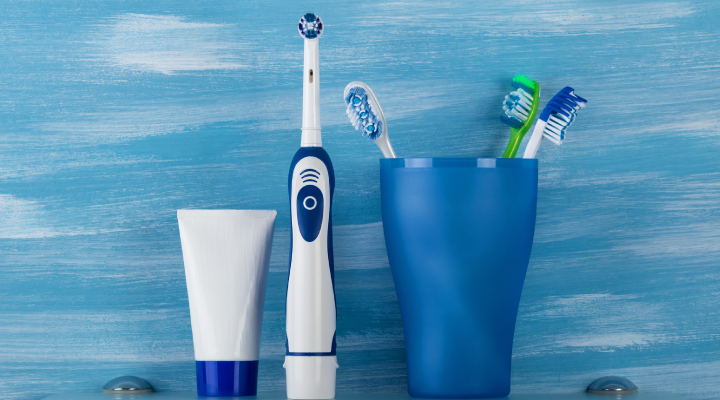
Electric toothbrushes — you’ve seen the ads and seen them in the aisles. Have you wondered, “Are they really worth the money?” When some models cost as much as $180, it’s worth the time for a little research.
Here’s a short balance sheet to compare the benefits of electric and manual toothbrushes:
Advantages of Manual Toothbrushes
Advantages of Electric Toothbrushes
The American Dental Association says both kinds of toothbrushes can be effective for oral health. But, a Cochrane Oral Health Group review of studies spanning nearly 50 years found that electric brushes were better at reducing plaque and gingivitis.
No matter which you choose, how well the toothbrush cleans depends on proper brush use. The most important rule is to brush two times a day for two minutes each time.
You should also use a brush with soft bristles to prevent gum damage. Too much pressure from a toothbrush can wear enamel and gum tissue and cause tooth sensitivity.
And brushing should include all surfaces of the teeth plus your tongue and cheeks.
Our best advice is to use a toothbrush that has a Seal of Acceptance from the American Dental Association. Toothbrushes with the seal have met specific standards for quality and effectiveness. You can check their online guide to see which toothbrushes have made the list.
Whichever you use, don’t forget it will need ongoing care. Read more at: